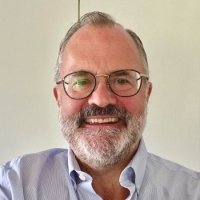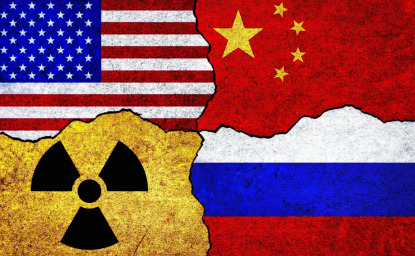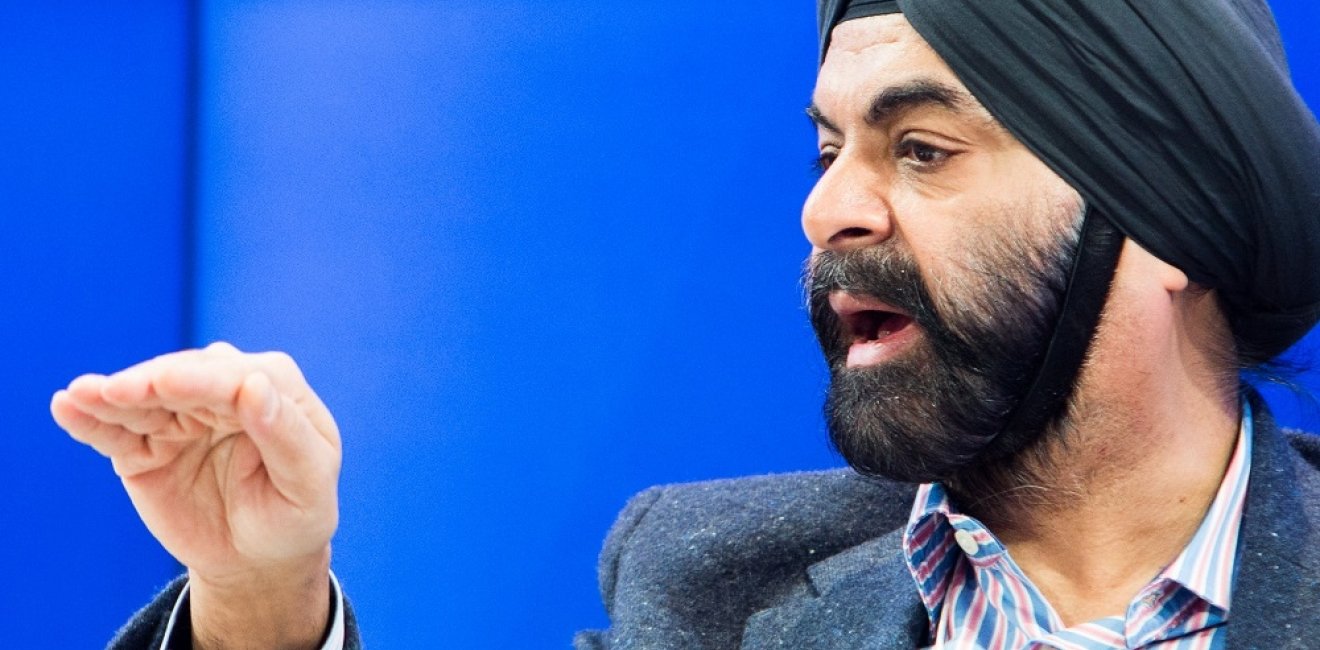Since its founding in 1944, the World Bank has been a pillar of global development policymaking. Its stated mission to end extreme poverty and promote shared prosperity by lifting incomes of the poorest could hardly be more noble. It provided more than $14 billion to help people in more than 100 countries combat COVID-19. It has made available more than $30 billion to address the food crisis stemming from the war in Ukraine.
Yet over the decades, the bank has found itself in the crosshairs of critics on the left and the right. Some argue the bank has lost its way and that other sources of financing – financial markets, China – render it irrelevant. Some charge the bank’s mission is too focused. Others contend its mission is not focused enough. Some say the conditions attached to its loans are too onerous. Others say it spends too much money.
Attacks on the bank are not new and some have merit. At the turn of the century, development activists called for radical reform or scrapping the bank and its Bretton Woods sister organization, the International Monetary Fund. Much of this animosity was rooted in anti-globalization vitriol and seemed to ignore the millions of people the bank had helped over the decades. Blaming the World Bank for poverty was “like blaming the Red Cross for World War I,” according to former WTO Director-General Mike Moore, who was close to Jim Wolfensohn, then the bank’s president.
Today, the bank faces renewed calls for reform and a review of its mission. The rapid onset of climate catastrophe, a pandemic that killed 6.8 million and deepened poverty in the developing world, and the outbreak of a fierce war in Europe have generated a multitude of new crises to which the bank’s shareholders are demanding a strong response. Many believe the response has been too slow in coming. A decade of lackluster leadership has contributed to the rumblings of discontent.
But now the bank is poised to appoint a new president, Indian-born Ajay Banga, long-time chair of Mastercard. The established, and oft-criticized rule is that the United States (the bank’s largest shareholder) chooses the World Bank president while the Europeans choose the managing director of the International Monetary Fund. Given this, and given that Mr. Banga has already attracted support from powerful World Bank members like India, Britain and Germany, it is a near certainty that Mr. Banga will take the reins soon after the Bank-Fund spring meetings in April.
He will have his hands full, and he will have to move quickly. Major shareholders in the bank are pushing for sweeping reforms that would reorient the bank’s activities. US Treasury Secretary Janet Yellen, who represents the bank’s biggest shareholder, would like the first step of what she calls the “evolution plan” to take place at those meetings and for the full reform to be agreed upon this year. Earlier this month, shareholders approved financing guidelines to ensure that bank lending is in line with the objectives of the Paris Agreement on combatting climate change.
Outgoing bank president David Malpass stepped aside early as some complained he displayed a tin ear on the question of climate change, failing to fully embrace the widely accepted fact that human activity is behind the fast-encroaching climate disaster. Mr. Banga will not make this mistake.
The World Bank is a complex organization comprised of five entities – The International Bank for Reconstruction and Development, the International Development Association, the International Finance Corp., the Multilateral Investment Guarantee Agency and International Center for Settlement of Investment Disputes – that provide policy guidance, loans and grants for poor and middle-income countries and the private sector in developing countries. While the bank receives paid-in capital from its member governments shareholders, its main source of finance is bonds it floats on capital markets and interest it collects on its loans. In fiscal 2022, the bank disbursed $67 billion in loans and grants while committing $104 billion.
Throwing the bank’s formidable financial and policymaking clout behind efforts to combat climate change while preserving its central role in poverty reduction and development will be among Mr. Banga’s foremost challenges. More than 30 bank members – including Brazil, Argentina, India, Indonesia and Saudi Arabia – have already signaled their alarm at the prospect of development programs being sidelined in favor of environmental project lending. Others worry that a shift in priorities could dent the bank’s stellar triple-A credit rating, essential if it is to bolster its concessional lending.
Development activists are calling for a capital increase for the bank, which would be the first since 2018. But any such efforts are likely to run aground on Capitol Hill, where an ever-skeptical Congress believes the bank should make do with what it has. Aware of congressional reticence, G-20 countries have shifted their focus to reforms that would change the bank’s rules so it could extend lending without increasing obligations for its member government shareholders. In a 2022 report for the G-20 group of nations, a team of experts offered a series of recommendations on how the bank and other multilateral development banks could play a bigger role by mobilizing great financing within current budget limits to address climate change and other pressing challenges facing developing countries.
The experts argue that the World Bank is quite different from other banks in that its shareholders are finance ministries from the 189 member governments. These governments provided “paid-in capital,” which can be used by the bank for its operations and “callable capital” to be drawn upon in the event the bank could not meet its financial obligations. Such a contingency has never arisen in the bank’s nearly 80-year history. But the fact that finance ministries and central banks have skin in the game impresses credit agencies and is a major reason they extend the bank their best possible credit rating, AAA, a level of lending confidence extended to multilateral development banks and very few others.
Given this unique and privileged status, the experts argue that the bank – and other multilateral development banks – should change their guidelines to assess risk differently, and presumably less stringently. Making the bank’s priorities, and its data, more transparent should also reassure markets, they say. According to the team of experts, implementation of these recommendations could enable the bank to boost its lending capacity over the next year or two by as much as “several hundreds of billions of dollars over the medium term.”
The institution must now evolve to tackle challenges that its founders couldn’t imagine — in the keen understanding of how these priorities intersect. Climate change, pandemics and forced migration are eroding progress for the very people whom development efforts benefit. The tasks ahead of us are intertwined. Their scale means that no institution can do it alone.
To follow through with these recommendations and others, the 2023 Indian Presidency of the G20 has constituted another expert group on strengthening multilateral development banks headed by former US Treasury Secretary Lawrence Summers and Mr. NK Singh, President, Institute of Economic Growth and Former Chairperson, Fifteenth Finance Commission of India.
Predictably, Mr. Banga’s appointment has attracted criticism from some quarters. Environmentalists and development activists bemoan his financial and business orientation and his lack of green experience. Others would have preferred that bank member countries appoint a woman for the first time. Still others fret that Washington will once again retain its stranglehold on this crucial appointment.
But selling Mr. Banga short would be a mistake. His financial acumen will be a major asset in steering the bank and its shareholders toward reforms of rules on lending and capital adequacy. His Indian upbringing and education give him good grounding in the problems of developing countries. He receives high marks from those who worked with him at Mastercard, and his tenure was marked by extensive international cooperation and engagement.
He served the International Chamber of Commerce from 2018-21 as both vice chair and chair and displayed a strong commitment to multilateralism through his support for the global trading system, UN Climate Change initiatives and the global response to the Covid-19 pandemic.
He led several sustainability initiatives at Mastercard, including the Priceless Planet Coalition, in which his company and others, including Citibank, American Airlines, Santander and the New York Metropolitan Transport Authority pledged to promote greater sustainability while investing in environmental preservation, including a plan to plant 100 million trees over five years.
Mr. Banga seems keenly aware of the magnitude of the challenge awaiting him. Writing in the Financial Times, he acknowledged the bank had to change if it were to address the multiple crises it faces and that no one entity, not even the World Bank, could do this on its own.
“The institution must now evolve to tackle challenges that its founders couldn’t imagine — in the keen understanding of how these priorities intersect. Climate change, pandemics and forced migration are eroding progress for the very people whom development efforts benefit. The tasks ahead of us are intertwined. Their scale means that no institution can do it alone,” he wrote.
Overseeing the planned reforms and balancing green and more traditional lending will not be easy. The bank’s financing for climate-related projects has grown 83% since fiscal year 2019 to $26 billion, but clearly more needs to be done to mainstream green issues into its project lending. Given the tremendous toll climate-related disasters have already wreaked on developing countries, with the threat of worse to come, bringing a deeper shade of green to development lending need not be controversial. But it does need to be urgent. The UN Environment Program says meeting the challenge of climate change will cost developing countries between $160 billion and $340 billion by 2030, and as much as $565 billion by 2050.
Mr. Banga must resist the temptation to be pulled in too many different directions, a challenge for the chief of such a diverse and multifaceted institution. But he seems to have a clear vision of his mission. This is an important start.
Multilateralism is messy and an organization with $298 billion in total capital, 12,778 full-time employees based in a grandiose headquarters building in Washington will never attract mass sympathy. But the concessional lending and grants the bank has extended since 1946 – $500 billion in loans and $23 billion in grants – have proven to be a lifeline to many impoverished countries.
Given the bank’s crucial importance in poverty alleviation and its central role in financing climate response projects, we must all root for Mr. Banga to succeed.
Author

Director of the Information and External Relations Division and Chief Spokesman at the World Trade Organization (retired)

Wahba Institute for Strategic Competition
The Wahba Institute for Strategic Competition works to shape conversations and inspire meaningful action to strengthen technology, trade, infrastructure, and energy as part of American economic and global leadership that benefits the nation and the world. Read more

Explore More
Browse Insights & Analysis
US Inaction Is Ceding the Global Nuclear Market to China and Russia

Promoting Convergence in US-Brazil Relations


